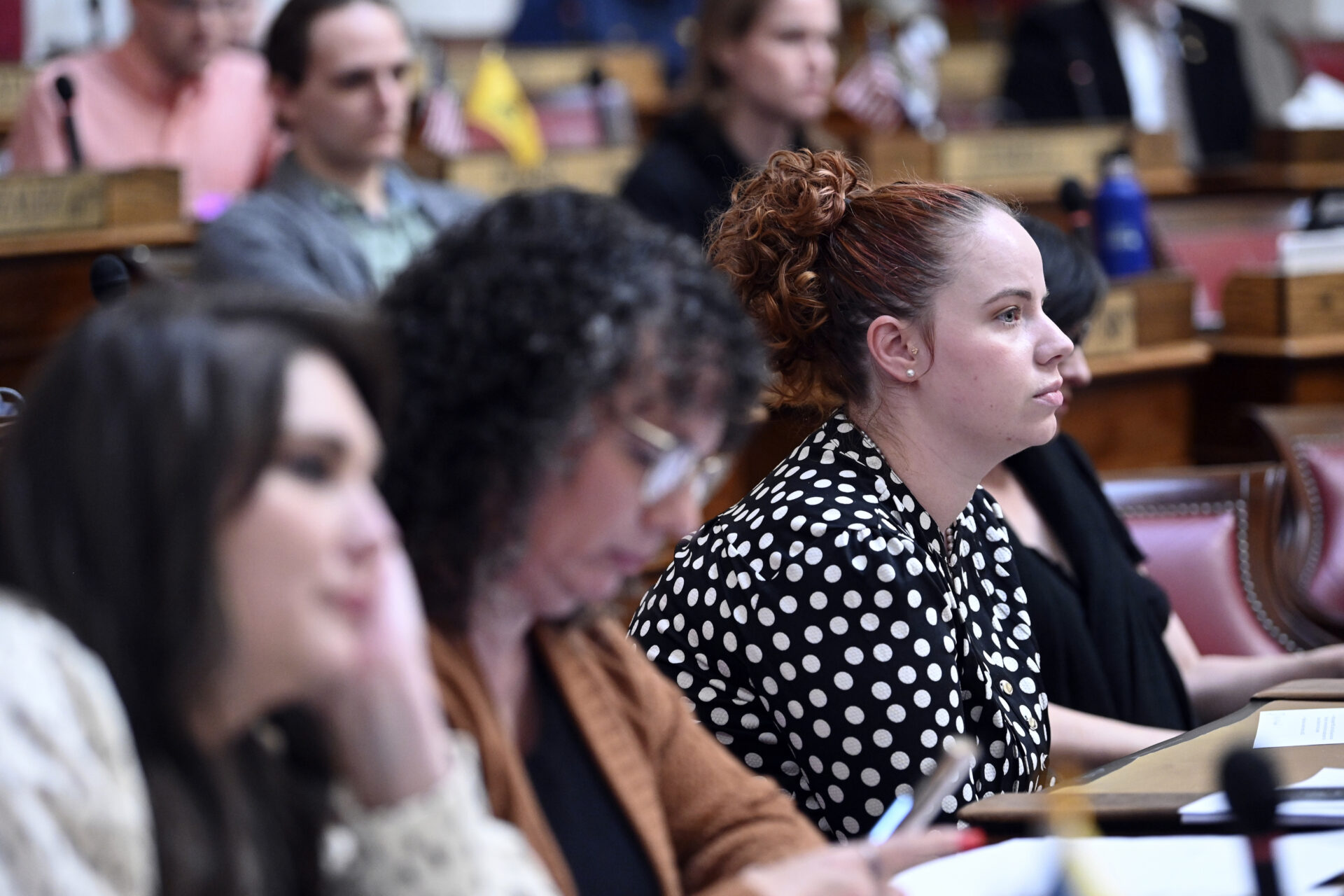Some people said West Virginia needs a law to codify the right of residents to challenge government regulations that interfere with their religious beliefs because of growing threats to their constitutional freedoms.
Others who spoke during a public hearing at the state Capitol Friday said they are worried the proposal advancing in the Legislature will be used as a tool to discriminate against LGBTQ people and other marginalized groups.
“Exercising your religion does not mean discriminating or condemning people because they do not have same beliefs as you,” said Jessica Eplin, who said she is worried about how the proposed law could affect her as an atheist and her child, who is transgender.
The bill, which passed the House Judiciary Committee earlier this week and is now before the full House of Delegates, would require a government entity to have a compelling reason to burden someone’s constitutional right to freedom of religion and to meet its goals in the least restrictive way possible.
A similar bill failed in 2016 after lawmakers voiced concerns about how it could affect LGBTQ residents. Then-Senate Majority Leader Mitch Carmichael wiped away tears on the Senate floor as he spoke in support of Democratic-proposed amendment that would bar the legislation from being used to discriminate against LGBTQ people.
The bill also dictates that the proposed law could not be used to permit access to abortion, which was banned by West Virginia lawmakers last year. The provision was included as abortion rights groups are challenging abortion bans in some states by arguing the bans — supported by certain religious principles — violate the religious rights of people with different beliefs.
Republican sponsors say the bill has good intentions. Del. Chris Pritt of Kanawha County, who is a Christian, said the bill would make West Virginia attractive to economic development. He said it’s not just about protecting Christians, but religious minorities in the state, too.
But Catherine Jones, a gay woman, said the bill would do nothing but “legalize discrimination against already marginalized communities.” She said she fears the bill could allow businesses to challenge city ordinances prohibiting discrimination in housing or employment based on sexual orientation or gender identity.
“I should not be afraid of not being served at a restaurant because I have a different relationship than you do,” she told lawmakers. “This bill will do nothing but spread hate and violence across our state.”
At least 23 other states have religious freedom restoration acts. The laws are similar to the federal Religious Freedom Restoration Act, signed in 1993 by President Bill Clinton, which allows federal regulations that interfere with religious beliefs to be challenged.
Eli Baumwell, advocacy director and the Interim executive director of the American Civil Liberties Union of West Virginia, said the 1993 federal law was designed to designed to protect people, especially religious minorities, from laws that affected their ability to engage in personal practices of their faith.
“Unfortunately, people have seized upon a good idea and turn it a shield into a sword,” said Baumwell, who spoke in opposition to the bill. “RFRAs today are promoted by organizations and ideologies and aren’t concerned about individual religious observances. They’re focused on circumventing laws that require fair and equal treatment.”
People who spoke in support of the bill said they were concerned about the government imposing vaccination requirements against people’s religious beliefs and restrictions during the COVID-19 pandemic that limited in-person worship in states across the U.S.
Monica Ballard Booth said she supports the bill because she wants to see equal protection for people of all faiths. “Since some have questioned why this was necessary, I’ll tell you why it’s necessary: Christians are the most persecuted group in the world,” she said.
Pastor Bo Burgess of West Virginia Baptists for Biblical Values said he doesn’t believe the bill could be used to discriminate against anyone — it’s about protecting people from discrimination, she said.
“This legislation doesn’t allow me or a business to go around and attack other people groups,” he said. “There’s no people group language in the bill.”
Baptist Pastor Dan Stevens of Wood County said people like him want the same benefits of equal protection as people who oppose the bill.
“We live out our firmly held religious beliefs and convictions about marriage, the family, human sexuality, the value of human life from conception to the grave without fear,” he said. “This bill designed not as a tool of discrimination used by people of faith but to protect the people of faith against discrimination for those who are opposed to our beliefs and our lifestyle.”
